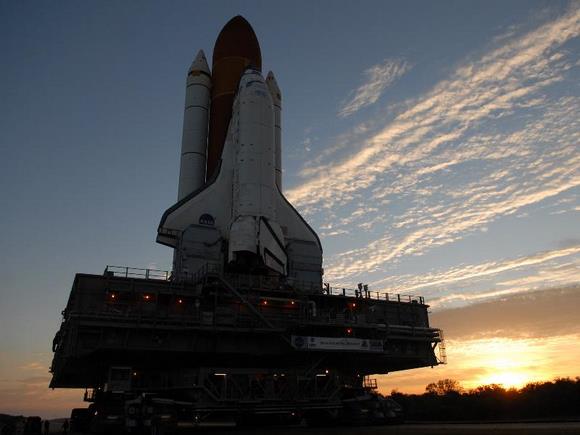After a marathon meeting that lasted until the middle of the night (the morning hours were overcast), the shuttle program managers decided to conduct additional tests for the liquid hydrogen flow control valves. On Wednesday they will meet again and may decide on a date

NASA announced another delay in the launch of the shuttle Discovery for mission STS-119 to the International Space Station, the fourth delay in the number.
After a meeting that lasted all day Friday, in which the shuttle's readiness for launch was tested, NASA managers remained uncertain about the functionality of the three valves regulating the liquid hydrogen from the engines to the external fuel tank. The engineering teams worked to identify the causes of the damage to the flow control valves during the launch of the shuttle Endeavor Batista in November 2008. NASA officials decided on Friday that additional data and experiments are required before the launch can be approved.
"We need to complete more work to get a better understanding before we take off," said Bill Gerstenmeier, NASA's assistant administrator for manned space missions at NASA Headquarters in Washington. Gerstenmeier was the chairman of an examination committee for readiness to fly on Friday. "We were not pushed by the pressure of schedules and we did the right thing. When we fly, we want to do it in complete safety," he said.
Besides understanding what happened to the Endeavour's valves, the team also tried to assess the consequences of falling pieces of those valves if they hit parts of the shuttle and the external fuel tank.
Meanwhile, the launch of Discovery was moved from February 12 to the 19th, then to the 22nd and the 27th and now - after the briefing that lasted until midnight - it has been postponed until further notice. Shuttle program managers were required to develop plans for additional testing, the program will be evaluated at a meeting on Wednesday, February 25, and then a new launch date will also be considered.
Meanwhile, the astronauts fly back and forth between the Johnson Space Center in Houston, where their home base is located, and the Kennedy Space Center.

7 תגובות
to the point
I agree with you that the launch of the shuttle in itself is not a scientific event, but a technological, pre-scientific event that is part of the scientific-technological research front of our time. By the way, it is absolutely legitimate that some of the articles published on the site will not interest you, but it is certainly possible that others will. I don't believe that your areas of interest, only, is the only criterion as to whether any article is worthy or not worthy of publication. By the way, please note that the title of the site "Hidan" also includes the field of technology, as part of the site's coverage areas. Point!!!
It seems to me that if you make a poll among the readers, you will lose.
Space launches don't interest me that much. I see no difference between this and a plane that flies from the airport to an altitude of 10KM.
It would be the same if people flew to the moon or a manned flight to Mars.
Point, you'd be right if we weren't after two disasters caused by someone screwing up the pre-flight checks.
And besides, do you have another website that tracks the launches?
Avi,
Why is there a special emphasis on shuttle launches?
I don't see any scientific knowledge in launching a shuttle.
The fact that a certain scientist sneezed is of greater scientific importance...